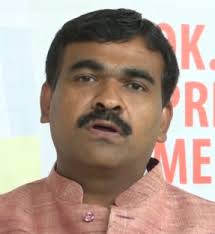The Constitution of India has vested in the Election Commission of India the superintendence, direction and control of the entire process for conduct of elections to Parliament and Legislature of every state and to the offices of the president and Vice-President of India.
These elections determine the composition of the Government, the membership of the two houses of Parliament, the State and Union Territory Legislative Assemblies and the Presidency and Vice- Presidency.
In the states the Election Commission functions through the office of the Chief Electoral Officer. The office of the CEO functions under the guidance, supervision and control of the Election Commissioner. The office is responsible for preparing, maintaining and periodically updating the Electoral Roll, which shows who is
entitled to vote. It also registers political parties and monitors the election campaign, including candidates funding. It also monitors the coverage of the election process by the media, organizes the polling booths where voting takes place and looks after counting of votes and the declaration of results. All this is done to ensure that elections can take place in an orderly and fair manner.
After the creation of the officer, the bye-election of Ramgarh Assembly and bye-election of Dumka Parliamentary elections were successfully conducted. The bye-election of Godda Parliamentary seat is scheduled to be held on 12-12-2002 for which the preparations are going on.
Besides this, these officers successfully conducted the summary revision of electoral rolls in 2002 and it is doing the special summary revision work of 2003.
Website serves as an important link between the Government & Citizens. It provides features enabling members of the public to give their views/feedback for further improving governance. Elections are conducted according to the constitutional provisions, supplemented by laws made by Parliament. The major laws are Representation of the People Act, 1950, which mainly deals with the preparation and revision of electoral rolls, the Representation of the People Act, 1951 which deals, in detail, with all aspects of conduct of elections and post-election disputes. Information relating to enrolment of name in the electoral roll, conduct of elections and issue of electors’ photo identity cards are available on this website for awareness of the public in order to exercise their electoral rights. Electors and public in general are requested to avail of this opportunity and give their opinion/suggestions for improving the site and making it transparent and citizen-friendly.
